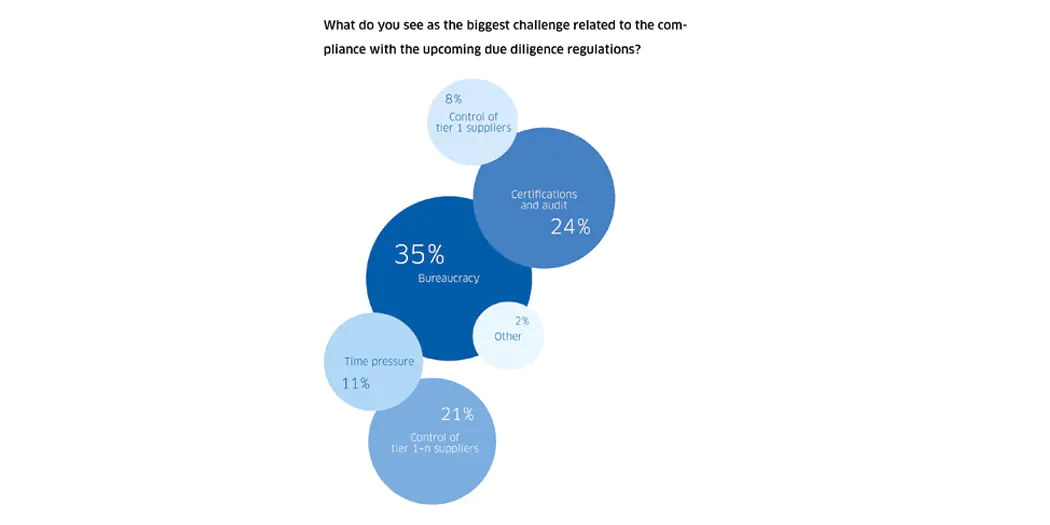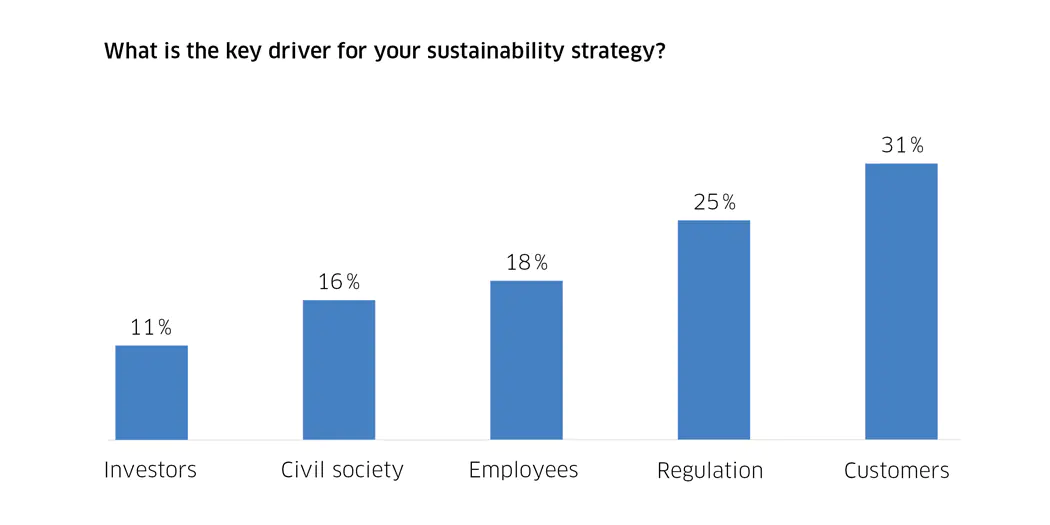In general, the study participants' expectations of the Supply Chain Due Diligence Act can be described as positive, although not everyone is yet willing to pay the price for sustainability. Almost half of the participants stated that the legislation will have a positive impact on the environment and society or can contribute to fair competition. On the other hand, 41% of companies focus on the increasing administrative burden and higher costs, especially since the specific requirements of the law are unclear to many companies and responsible employees.





